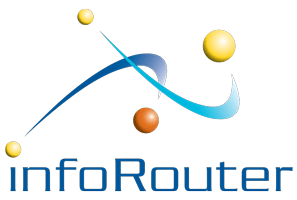Imagine you’re a highly-paid consultant.
The CEO of a Fortune 100 corporation asks you to write a requirements document to purchase an EDMS, an Electronic Document Management System. A big-ticket item that could make a difference for the company’s future as well as your career.
What would you include in your specifications list?
What would be the factors you should pay attention to?
There are many moving parts to an EDMS and many conditions that it has to satisfy; conditions that change from one enterprise setting to another. Select the wrong specs, and you may end up wasting time and losing your company quite a bit of money.
Perhaps you need some help, some inspiration.
Here are a few questions you might ask before you finalize your specs and give the thumbs-up for a purchase.
Degree of Integration
An EDMS does not work in isolation but together with other existing systems and enterprise modules. Will you be able to integrate the EDMS with the existing email platform and office application suites? Would the EDMS support existing integration standards such as WebDAV, SOAP, or LDAP? Does it have an API?
Higher the number of such modules and protocols the EDMS integrates nicely, the lower will be your long-term transition costs and higher will be your productivity gains and ROI.
Scalability and Robustness
Will the EDMS be scalable, that is, will it be able to accommodate any new productivity demands? If, for example, the company wins a new federal contract and the number of pages it processes jumps from 100,000 to a million pages a month, will your EDMS be able to keep up with such a ten-fold increase in workload? If there is an increase in the number of users, processing hours, or both, will the EDMS buckle under the load? Will it need any extra maintenance and system upgrading to deliver service at an optimal level?
Versatile Search and Retrieval
Searching and retrieving documents is a core function of any EDMS. How easy it is to tag documents and attach meta information for retrieval purposes? How fast different categories of documents can be searched and retrieved? Does the system allow for advanced searches with multiple criteria and Boolean expressions? What kind of indexing (a must for all fast searches) does the EDMS allow for?
Security
We are living in an age of world-wide hacking. How secure is the EDMS in protecting documents of vital importance? What safeguards are in place and which security protocols are implemented for safe document handling? Does the security system in question comply with U.S. federal requirements like HIPAA (Health Insurance Portability and accountability Act)? This is another core function that an EDMS should deliver flawlessly.
Version Control
Every corporation generates different versions of the same document on a regular basis. Any EDMS worth its salt should be able to keep track of these different versions, tag them with meta data like date and author of publication, and lock and unlock the documents depending on the authorization of the users.
Collaboration
A good EDMS should allow maximum collaboration among the corporate personnel for a flexible and effective workflow. The system should be able to enforce various workflow patterns for efficient distribution and processing of documents. The EDMS should support real-time as well as delayed-time handling and markup of paperwork. The system should be able to assign different clearance codes to different actors and authorize different levels of access to retrieve, edit, audit, and distribute documents.
Audit Trails
How versatile your EDMS is when it comes to keeping an audit trail of all changes? Can it quickly generate the information needed when you come face to face with an e-discovery request?
Ask these questions before making the final decision on an EDMS and advising your CEO to invest in it.
Blog Posts
- Document Management Horror Story
- infoRouter EDMS Best Practices
- Questions to Ask Before You Purchase an EDMS
- How to backup the infoRouter application directory
- How to backup the infoRouter Database
- How to backup the infoRouter Warehouse
- How to maintain the infoRouter Database
- Steps to create a great folder structure
- Supported versions and platforms

